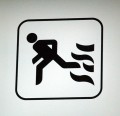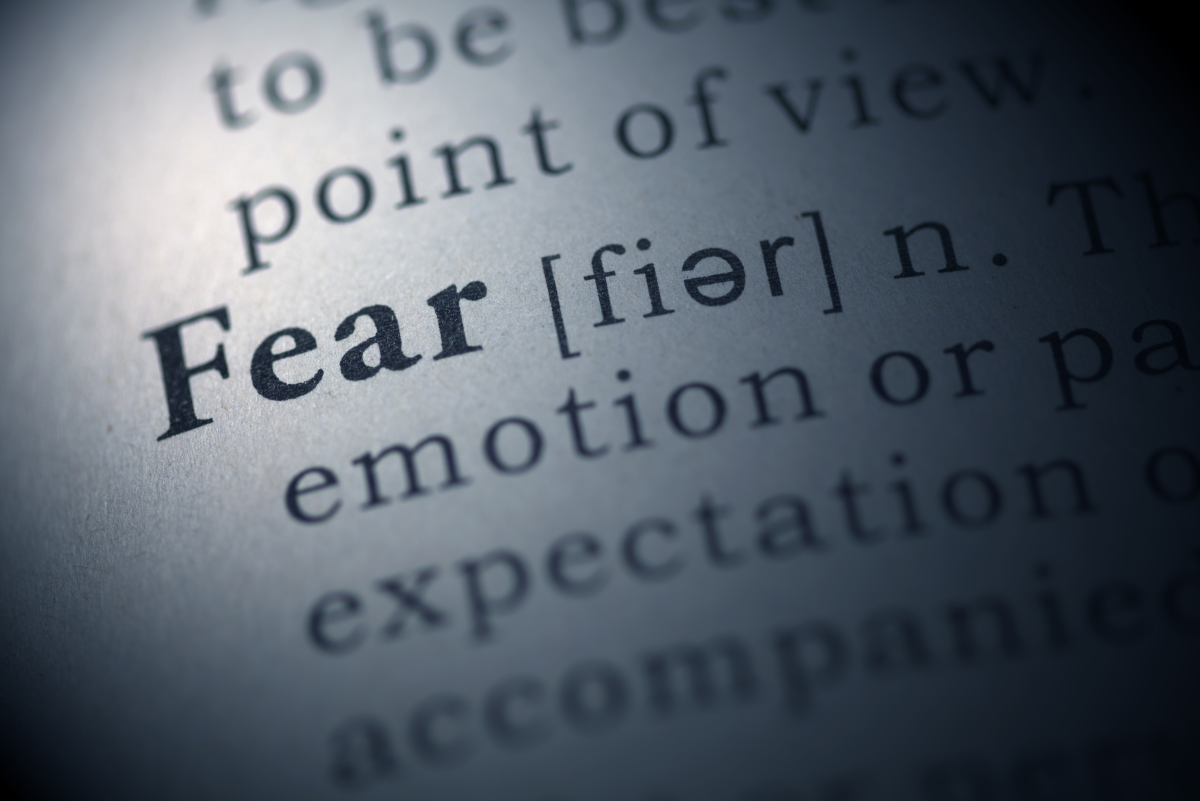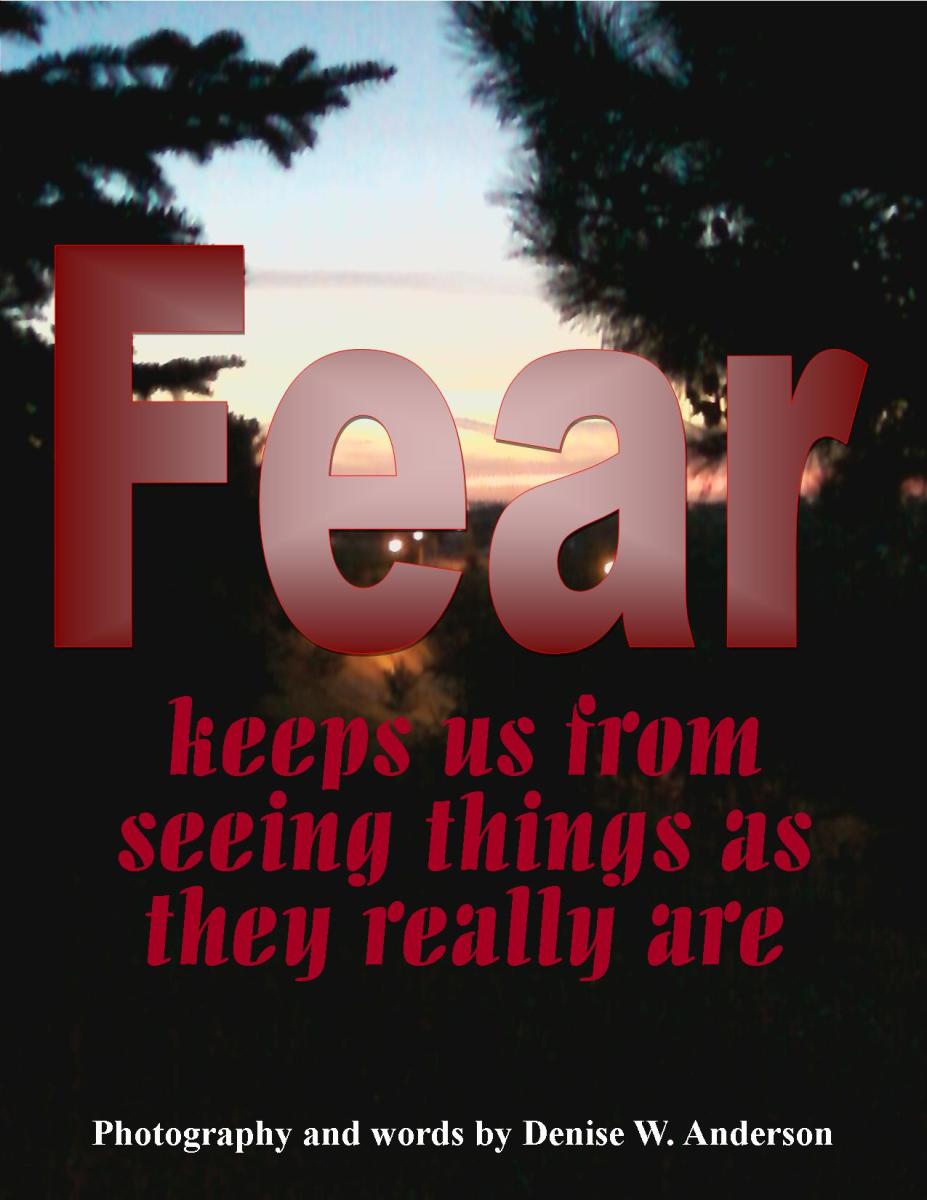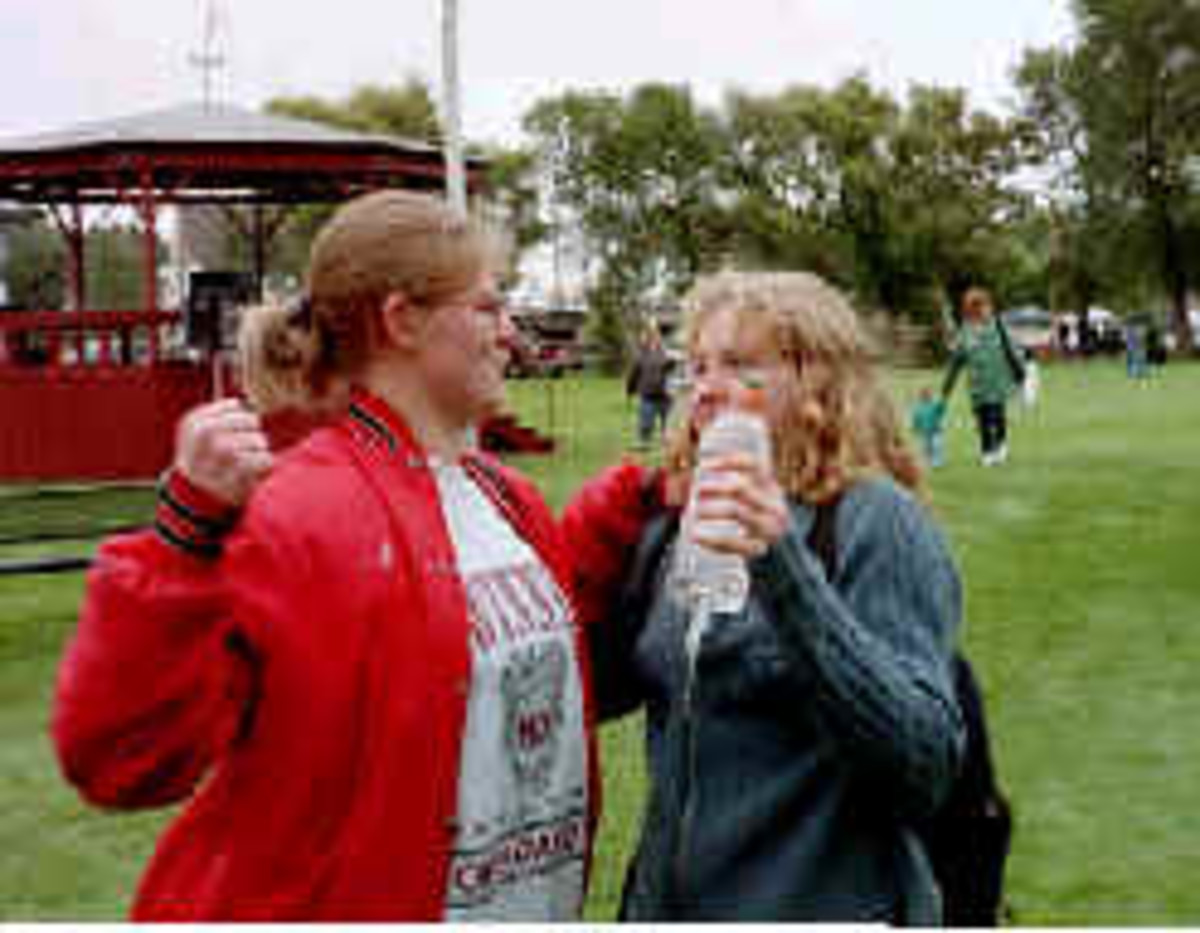Fear: Fight or Flight?
Ha, he ran away... Chicken!
As humans, fear is something that is ingrained into our system. It has been there since our caveman days and will always be here; we can't escape it. Nowadays, so many different people seem to be scared by so many different things - spiders, heights...bananas! - but back in our caveman days, when man had heads twice the size of what they are now, wore rags as opposed to Calvin Klein and hunted his food instead of going to the supermarket, things were quite different in terms of fear.
We were scared of one thing and one thing only: predators. That is, saber tooth tigers and the like. When confronted with one, we would feel this little thing called fear. The next step was all down to nature: the fight or flight reaction. If he fled, did it really mean he was being a 'wuss', or was he just listening to that logical little voice in his head saying, "There's 10 of them and 1 of you, they have huge teeth and you have a stick - run away!"
The Fear Reaction: what exactly happens?
When we feel fear what we are actually feeling is adrenalin. It's the same type of adrenalin as when we're on a roller coaster - when we're scared but exited at the same time - just without the excitement!
When looking at fear, there are three main parts of the brain that are concerned.
- The Neocortex
- The Amygdala
- The 'Reptilian Brain'
- So let's look at the neocortex: this is the part of the brain which stores your happy memories and the emotions that go with them. When you remember opening that prezzie on Christmas day, you also remember how happy you felt. It holds long-term memories and has that much-needed ability to say, "Nothing's wrong, calm down!".
- The Amygdala, however, isn't so kind to you. This is the part of the brain which stores your negative memories and...yep, that's right, the emotions that went with them. You rememeber the fear, the sadness, the anger you felt at the time. And to make matters worse, the human brain is 66% more likely to remember your bad memories than your good ones. Why? Because...
- ...the third and final section dedicated to the storing of memories in the human brain is the reptilian brain and, guess what, it also stores the negative ones and their emotions as well as holding instinctual fears. It is incapable of higher thought. This is the first part of the brain to be developed in the womb, followed by your amygdala and then the neocortex. So you see now why we're so prone to getting scared!
So which is it to be: fight or flight?
When we are suddenly confronted with something we don't like, we will most likely feel afraid. In a split second, our subconscious minds are making a potentially crucial decision for us that our conscious minds are not quick enough to effect: "do I fight or flee?" When Fiona and I witnessed our friend suddenly being hit by a car some years ago, we were understandably scared and the first thing Fiona did was scream and run. This was her "fight or flight" reaction kicking in. Afterwards, she said to me, "I have no idea why I ran, I just did. It's like something took over." Which it did. Instinct took over.
Although this is a useful reaction to have when quick action is needed, the result is not always what we would have wanted to do. We may want to stay and fight, but can't help but run away. It's not down to bravery, it's down to our brain's reaction.
Similarly, the fight or flight reaction has unfortunately stayed with us and wormed its way into all aspects of our life. For example, you may feel scared or anxious before going on stage to perform. This is not a life threatening situation, but our brain still insists on making us feel that fear unnecessarily. This is when breathing techniques and constructive self-talk come into the picture to calm down those pointless nerves (see my hub http://hubpages.com/hub/How-do-you-Relax for further information).
There is, however, a third reaction that many people forget about: fight, flight or freeze. Stage fright is a good example of this, as is when someone sees a spider and freezes on the spot, 'paralysed from fear'. This is not the most useful of reactions, however, when facing that saber tooth tiger which is about to pounce on you...
Why do we get into such a state when are scared?
Adrenalin can have all sorts of effects on our body and, as usual, it differs for every individual. Adrenalin rushes can cause:
- Sweat
- Faster and shallower breathing (leading to hyperventilation, dizziness & hallucinations)
- Shaking (muscle tremours)
- Nausea
- Chest pains
- Tears
- Vulnerability to other negative emotions
This list can be long and varied, but at least you now know what it is you're feeling and why you feel that way as you jump out the path of the car that should have slowed down when it saw you about to cross the road!
2009 By Daniella Wood








